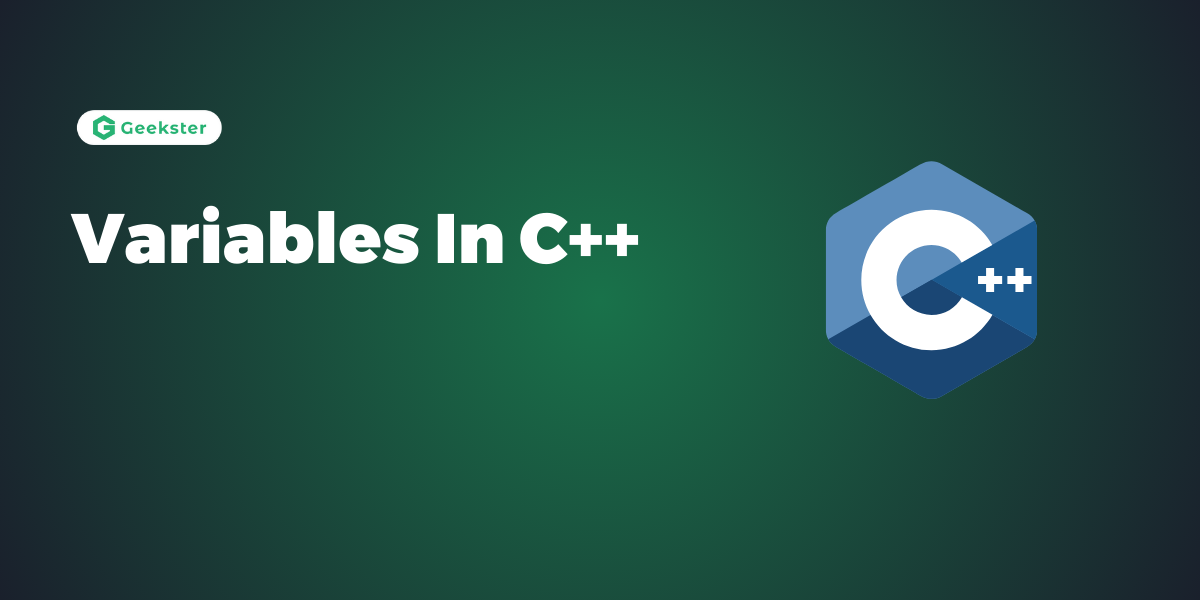Introduction
In the programming world, variables are like your own special resource where you can store all kinds of information. Just like you have boxes and drawers to organize your toys, books, and other items, C++ offers variables to hold data in. Let’s dive into the fascinating realm of C++ variables and learn how to use them like a pro!
What are Variables in C++?
Variables are simply named storage locations in your computer’s memory where you can store the values that your program should use. They act like labeled containers, each designed to hold specific data, such as integers, decimal numbers, characters, or even true/false values By giving a variable a name, you can easily specify and you can changed the data that it holds throughout your program.
Types of Variables in C++:
C++ offers several different types of variables, each with its own unique purpose. Here are some of the most commonly used ones:
- int: These variables are perfect for storing whole numbers, like your age or the number of toys you have. They’re like containers specifically designed for holding countable items.
- double: If you need to store numbers in decimal places, like your height or the price of a toy, then binary variables are the way to go. They are like containers that can hold different shapes and sizes.
- char: These variables are designed to store single characters, like letters, numbers, or special symbols. They’re like tiny containers that can hold just one action figure or a small toy.
- string: Strings are like super-containers that can hold entire words or sentences. They’re perfect for storing your name, favorite book titles, or any other text you need in your program.
- bool: They can only hold two values: true or false. Think of them as containers that can either hold a red ball (true) or a blue ball (false).
Declaring and Using Variables in C++:
To create a variable in C++, you need to specify its type and give it a name. It’s like labelling a container so you know what it’s meant to hold.
int age = 25;// Integer variable
double height = 1.75;// Double variable
char grade = 'A';// Character variable
bool isStudent = true;// Boolean variableOnce you’ve declared a variable, you can assign new values to it, combine it with other variables using operators like + or -, or even display its value on the screen using cout. It’s like putting new items in your container, combining the contents of different containers, or showing off what’s inside!
Example of assigning new values to variables:
int score = 80; // Initial score
cout << "Initial score: " << score << endl;
// Update the score
score = 92;
cout << "New score: " << score << endl;Performing operations with variables:
int num1 = 10;
int num2 = 5;
int sum, difference, product;
sum = num1 + num2;
difference = num1 - num2;
product = num1 * num2;
cout << "Sum: " << sum << endl;
cout << "Difference: " << difference << endl;
cout << "Product: " << product << endl;Conclusion:
Variables are the building blocks of any program, allowing you to store and manipulate data as needed. By mastering the art of using variables in C++, you’ll be well on your way to becoming a skilled programmer. So, the next time you write a C++ program, remember to create your own personal data containers and fill them with the information your program needs to run smoothly!
Frequently Asked Questions
Yes, you can declare multiple variables of the same type on a single line in C++. For example: int x, y, z; declares three integer variables x, y, and z on the same line.
No, variable names in C++ cannot contain spaces or special characters (except for underscores _). They must start with a letter or an underscore, and can only contain letters, digits, and underscores.
No, you cannot change the data type of a variable after it has been declared and initialised in C++. If you need to store a different type of data, you’ll need to create a new variable with the desired data type.

